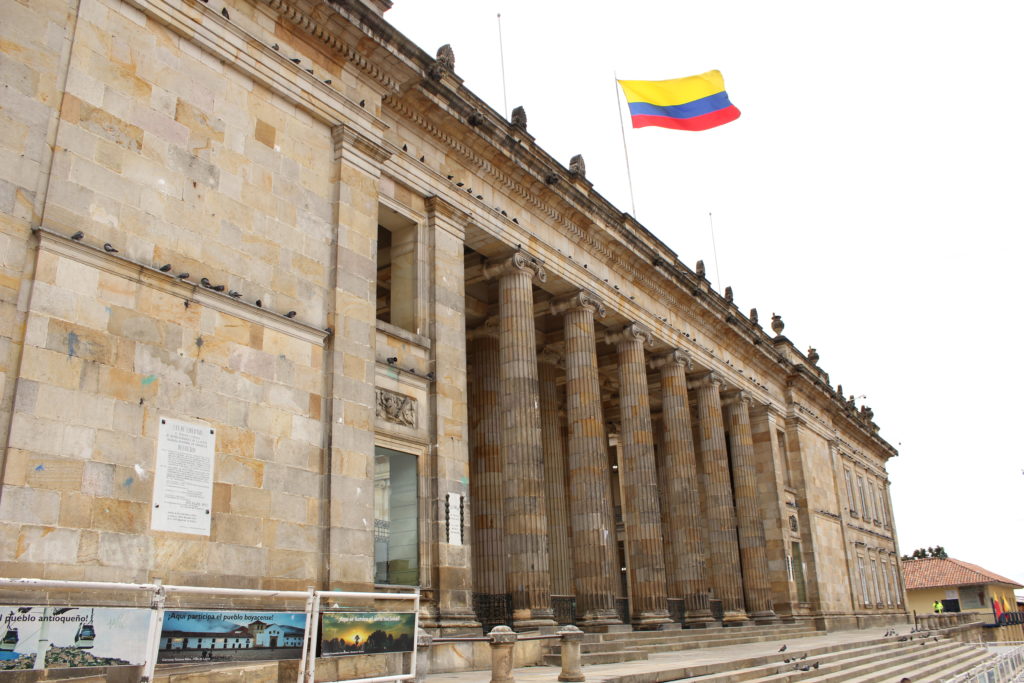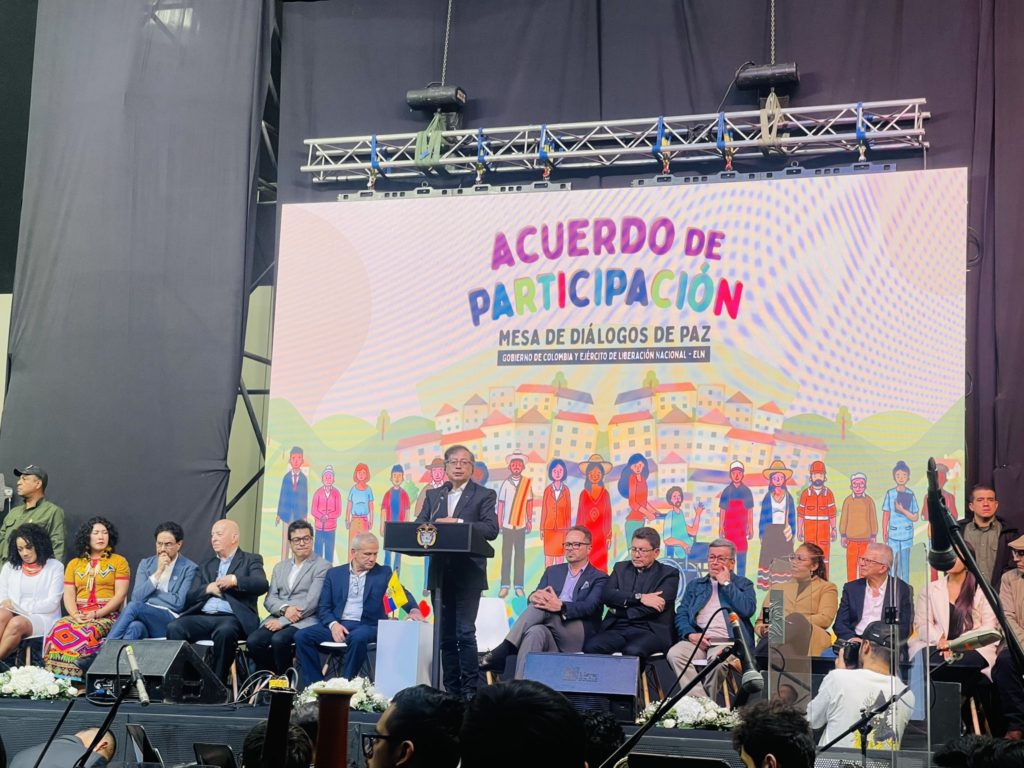
As the first year of Gustavo Petro’s presidency comes to an end, experts, journalists, and civil society are taking stock of the first 365 days of a left-wing government in the history of Colombia. The majority assume that it has been a turbulent period with ups and downs.
On the one hand, topics of debate that had seemed unquestionable in the country have been brought to the forefront. On the other hand, the continuous changes in the government, the loss of support from other parties, and the stagnation of social reforms in the debates of the Congress highlight the complexity of a year in power. The recent corruption scandal involving the president’s son, who has admitted the accusations, has further clouded public assessments.
From Optimism to Pessimism
August 7, 2022, will remain a historic date for Colombia: for the first time in over two hundred years of independent political life, the country inaugurated a left-wing president. With over 11 million votes, citizens had chosen to entrust Gustavo Petro, a historic figure in social struggles and progressive opposition, with the leadership of the country.
In a deeply polarized country, between supporters and detractors, the democratic principle of promoting political alternation in power was fulfilled. Petro arrived at the Casa de Nariño with an ambitious program of reforms. In addition to the announced social reforms (fiscal, pension, labor, agrarian, and health), the “Total Peace” project was introduced. Gustavo Petro aimed to extend the hand of the State beyond the resumed dialogues with the ELN guerrilla. He proposed extending the dialogue to all armed groups, including those known as the “FARC dissidents,” groups that deviated from the agreements reached in Havana between the FARC and the government of President Santos.
Even within the climate of polarization, a considerable portion of society was hopeful about the changes for which the citizens had voted. However, after the first year, shadows of doubt are more present than ever. Pessimism has spread, even among some of Petro’s second-round voters.
Stalled Reforms in Congress
Today, the success of the reforms is more doubtful than certain. However, the majority’s pessimism stems from the presumed impossibility of passing reforms due to the lack of majorities in the chambers. The government has the largest number of seats in the history of the left-wing, but it’s not enough. Without the support of other parties, the necessary majority isn’t attainable. Thus, the governing coalition must negotiate the new laws, and these laws have been losing support in other parties or have been diluted to stay alive in parliamentary debates.

“Total Peace” in a Growing Climate of Insecurity
“Total Peace” also doesn’t seem to be progressing as desired. While dialogue with the ELN is taking shape, with a bilateral 6-month ceasefire in effect, the country is experiencing an increasing sense of insecurity. Violence remains one of the main concerns. Social and political violence that citizens perceive as growing. On the other hand, although there have been favorable demonstrations regarding the government’s invitation, no insurgency or armed group is known to be negotiating their demobilization with the State beyond the dialogues underway with the ELN.
Some media even point out that the number of hectares dedicated to coca cultivation for groups outside the law has grown as never before in the country.

Open Debates in Society
For the more optimistic, and there are some, the fact that previously unthinkable debates are now taking place in the country is a start in itself. Today, issues like structural racism, climate change, and the acute social inequality of the country are forcefully brought into the light. They are being discussed and are the focal point of debates about the country’s future and the need for real structural changes.
One of the most controversial debates is the government’s proposal to abandon new oil prospecting as part of the energy model change. It’s a proposal that the Petro presidency is trying to defend, and it has been presented both to the U.S. presidency, where President Biden supports measures for climate change, and in Europe. In the old continent, Petro proposed exchanging climate action for external debt, an offer that Europeans showed a willingness to analyze.
The Latest Controversy: The Shadow of Corruption
However, this past week, the shadow of corruption has surpassed all debates. In addition to the investigation opened against former ambassador Armando Benedetti for alleged irregularities in the presidential campaign funding, the confession of the president’s eldest son has added to the situation. Nicolas Petro and his ex-wife were arrested on July 29, accused of illicit enrichment and money laundering. The president’s eldest son has admitted the charges and, in a strategy of collaboration with justice, confirmed that part of the illicit funds he received went to his father’s campaign. However, once released and awaiting trial, Nicolas denied that his father or the campaign manager Ricardo Roa, now the president of the giant Ecopetrol, had any knowledge of the irregularities.

The Necessary Future
Beyond perceptions and controversies, President Petro’s term continues. After the fiscal reform, which some of his supporters deemed too lenient, the fight continues to gather support for the rest of the reforms that were announced and continue to navigate their way through parliamentary proceedings. Dialogues with the ELN also continue their course. Last week, the National Participation Committee was established in the capital, an organization that seeks the civic and social participation of representatives from society in dialogues that the government hopes to successfully conclude before the end of its term.
However, uncertainty and weariness come at a political cost. Repeated changes in ministries and a sense of pessimism have led to a decrease in presidential approval among the public. Gustavo Petro began his term on August 7, 2022, with a 56% approval rating. Today, one year later, he is disapproved by 61% of citizens, according to the latest Invamer Poll survey. Approval is only at 33%.
A new, significant barometer for the president will be the local and regional elections next October. With very personal stakes, such as Gustavo Bolivar in Bogota, the support he receives from voters will mark a new gauge for the assessment of Gustavo Petro’s presidency.
See all the latest news from Colombia and the world at ColombiaOne.com. Contact our newsroom to report an update or send your story, photos and videos. Follow Colombia One on Google News, Facebook, Instagram, and subscribe here to our newsletter.

